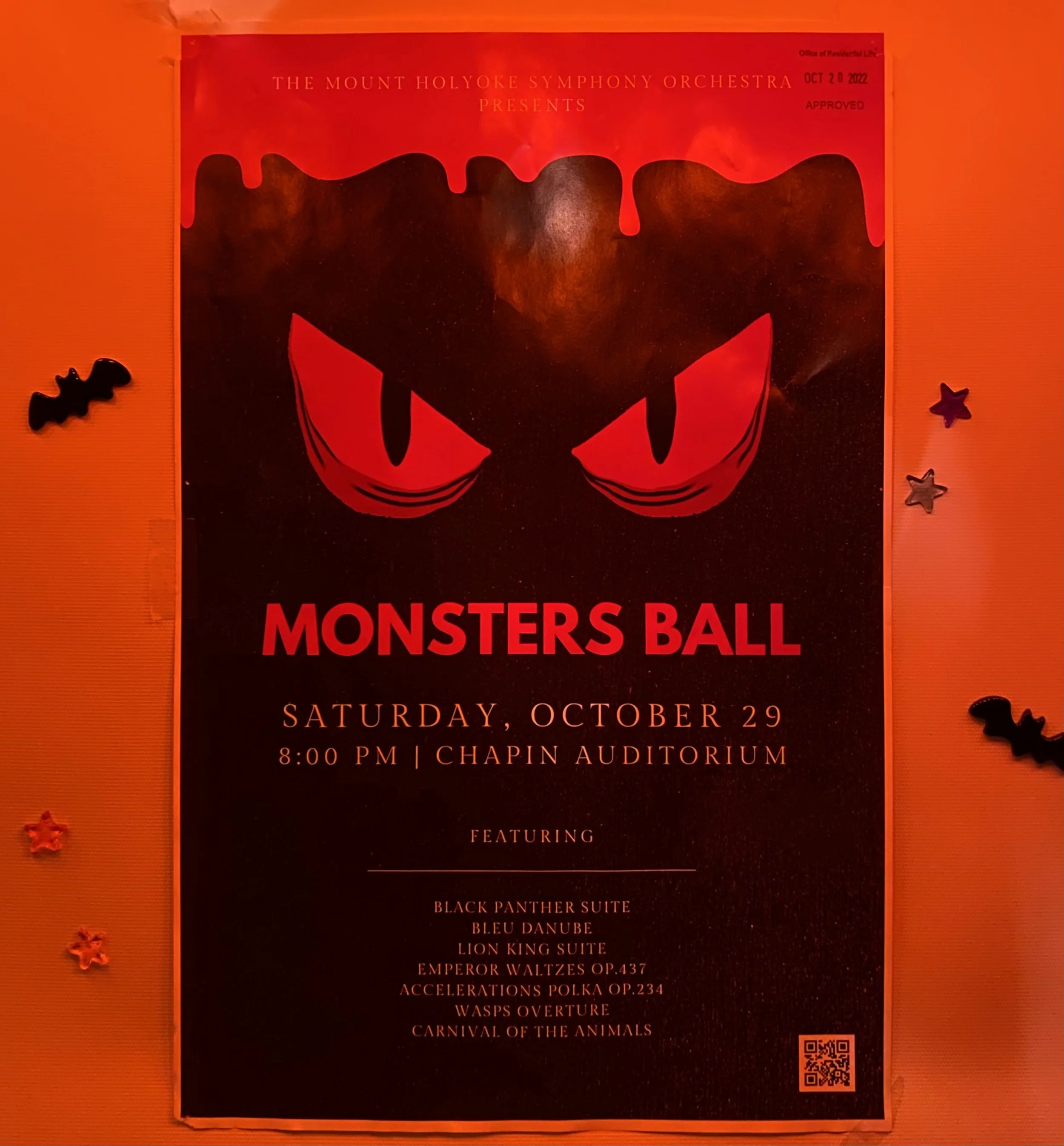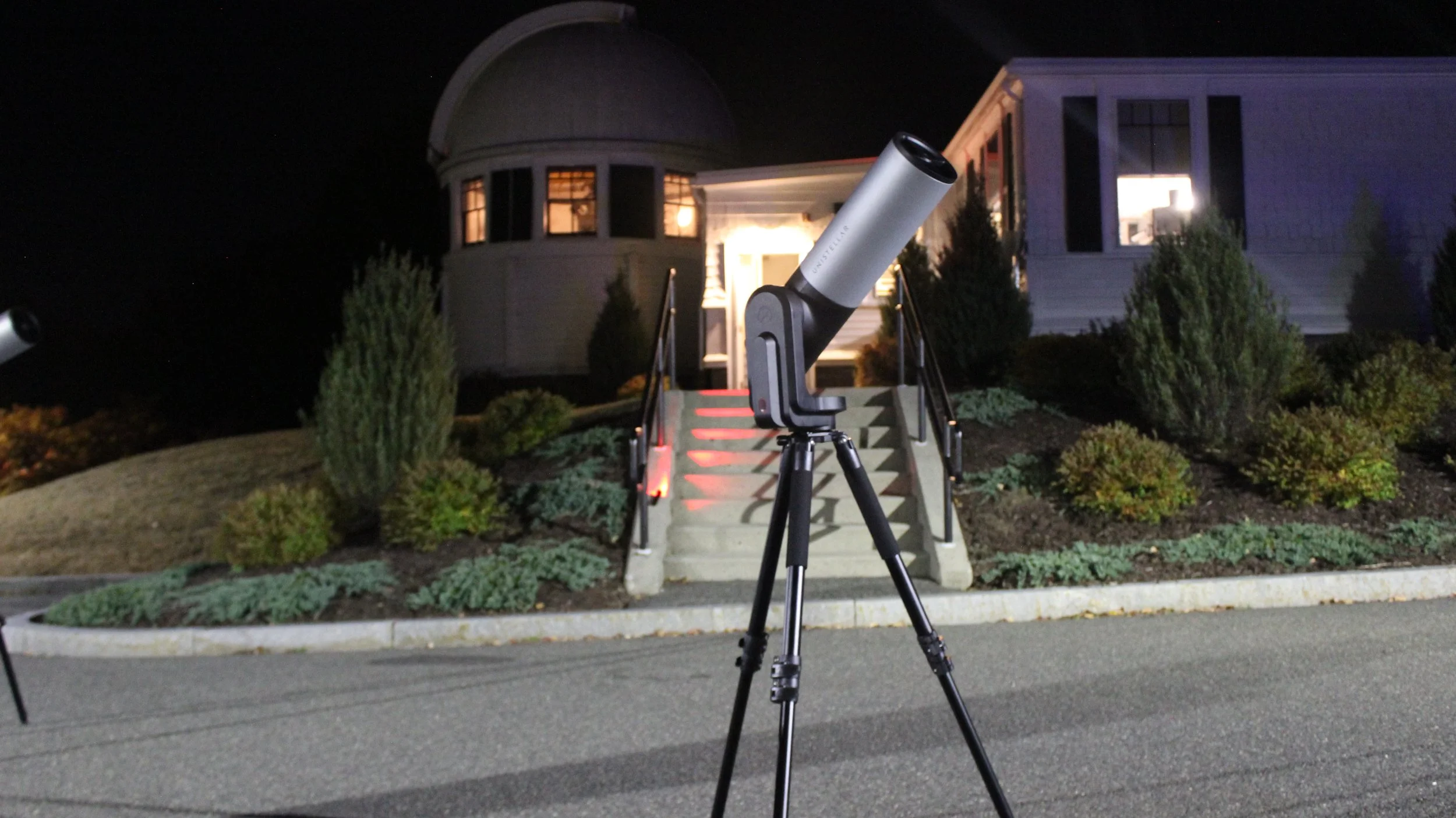Graphic by Sunny Wei ‘23.
By Rebecca Gagnon ’23
Staff Writer
As its second major move in the 2022-23 academic year, the first being free menstrual products in the bathrooms around campus, the Student Government Association has introduced a chest binder drive for the students of Mount Holyoke.
On Jan. 26, the SGA president, Maille Romulus ’24, sent an email announcing the binder drive that would take place the following day.
The email stated, “Tomorrow at 5 p.m., SGA will be releasing a pre-order form for chest binders which will be first come first serve, because we have a limited amount of spots.”
With this message, a link to the website gc2b was attached where students could browse the variety of sizes and colors available to prepare to place an order for a binder when the form opened.
Historically, chest binders have been used by transmasculine and nonbinary individuals to make their physical body reflect their gender identity. In addition, binders were used for fashion, cultural dress and even religious purposes. The concept of binders has been around for centuries, starting with tight corsets used to accomplish a desired figure. They also have taken the form of simple fabric strips wound around the chest to flatten one’s breasts.
Today, instead of fabric strips, there are many companies that produce chest binders for purchase. However, they are not always affordable. This is the problem the SGA at Mount Holyoke wanted to tackle to meet the needs of the College community.
“[SGA] wanted to get binders to people that wanted them on campus,” Romulus explained. “The Lavender Committee was in charge of doing it last year and this year they were not able to and so we wanted to keep the tradition going … we just had to find the funding for it and get people chest binders.”
The Lavender Committee is a division within the SGA with the mission “to celebrate and support the Lesbian, Gay, Bisexual, Trans/Transgender, Queer/Questioning, Intersex, Asexual/Aromantic and other identities community on the Mount Holyoke Campus.” However, because the committee isn’t as prominent on campus this year and is unable to hold the chest binder drive, Romulus concluded that the general SGA would present it since she had previously had students reach out and request it.
In addition, there was a specific group of students that Romulus was hoping to provide for. “We really wanted to center first-gen[eration] low-income students that wanted binders and wouldn’t have been able to get them otherwise because … they’re $40,” Romulus stated. “That’s an expense … and not everyone has $40 to spend, so we really wanted to center that group of people so they can have the care that they need.”
It has been Romulus’s goal throughout her presidency to create an environment where everyone on campus feels like they belong. Her approach has been to listen to all the needs of other students and assist them when able.
With this in mind, Romulus began searching for a company to partner with. Romulus asked around and received a unanimous recommendation from friends to use the website gc2b.
“We really wanted to center first-gen[eration] low-income students that wanted binders and wouldn’t have been able to get them otherwise because … they’re $40. …We really wanted to center that group of people so they can have the care that they need.”
gc2b’s mission statement states, “Over the past three years, we have sponsored 100+ LGBT organizations and donated over 6000+ chest binders to be distributed to people in need. We’ve attended numerous conferences and Pride events, and we’ve collaborated with local and global organizations committed to positive change. Our core mission has evolved: we’re not only a brand providing gender-affirming apparel, but an active part of a movement.”
However, at 8:00 a.m. on Jan. 27, nine hours before the form was supposed to open for people to order chest binders, another email was sent by Romulus. In this, she stated, “There are some concerns about the safety of GC2B binders, so we will be purchasing binder[s] from another company, FYTIST.”
“I got feedback from people telling me that [gc2b] is not the best, and here’s some other [companies] that we should work with,” Romulus stated. “Most of the research that I’ve seen shows that the quality has gotten worse over time and so I think last year … we didn’t get any complaints from it, but this year, people that have purchased binders from the company have complained about it, and so it … was safe last year, but this year, not so much.”
“Some people already use [gc2b], and they said that the binders hurt,” Ellie Do ’25, the vice president of the SGA, added. “So we … switch[ed] to another binder company that they would recommend [because] … it’s better for you. I don’t know if there’s a difference in price, but [there] is definitely a difference in quality.”
The FYTIST website states that “Binding should not be categorized, it is an essential and fundamental need for some. However, we have learnt that this basic need is significantly undervalued.”
Therefore, this company has been formed to provide this basic need to society. In addition, the website mentions concerns about safety, such as the risks and side effects of wearing a binder, if one can exercise while binding and how to establish a plan for wearing one.
Unfortunately, changing the company the SGA would order from on such short notice provided some challenges. Romulus explained that gc2b has all their products in stock, which would mean students would obtain the chest binders fairly quickly. However, many of the new company’s items were out of stock. Romulus swiftly concluded that she would rather wait longer to get more durable and safer binders than purchase ones that would bring discomfort and more risks. Although the company was out of stock, Romulus and the rest of the SGA E-Board members were determined to get the orders as quickly as possible. They continued with the drive as planned and monitored the website to see if the company restocked.
At 5 p.m. on Jan. 27, the SGA released the order form and students were allowed to order a chest binder from the website.
“After 30 minutes of opening the forms, I think we’re already at our limit,” Do stated. “That is why … they have to send an email out a day before to say ‘oh, this is happening. Here’s a form. This is a time that is happening. So you guys should be … prepare[ed] for it’ and once we open[ed] the form, only thirty minutes later it was out.”
Romulus immediately closed the form when they hit their maximum number of 70 orders so the SGA would not have to tell students “no.” In the following few days, she and the other board members continued to monitor the FYTIST website.
“Tahin Osborne [‘23], the DEI officer, created a spreadsheet and … went on the website to see what was in stock and what wasn’t in stock,” Romulus explained. “So with 70 orders, they have this color-coded [spreadsheet] of ‘okay, this is in stock and this is added to the cart.’”
Through this method, the SGA was able to purchase 30 binders in the first batch which will be arriving around Feb. 15. The following 40 orders were purchased shortly after when they noticed the company had restocked.
“We [Romulus and Osborne] were in [a] seminar and we had a 10-minute break and during the 10-minute break … I was like, ‘Oh, I wonder if … the binders are in stock,’” Romulus recalled. When she went on the website, Romulus saw that almost all the products were restocked and up for purchase.
“And so [Osborne] stepped out [and] they called the company,” Romulus continued. “They spent the whole 10 minutes of the break from our three-hour seminar ordering the last 40-something binders.”
The new batch of binders will be arriving toward the end of February, with a hope of distribution sometime next month. Although it depends on the following SGA presidents, Romulus foresees the chest binder drive being held annually.
“A binder [is] such a special thing,” Romulus finished. She stated how, in her friends who wear chest binders, she noticed a major difference once they started using them. “[It’s] just a confidence. How they think about things and something that … cisgender people have the privilege of not thinking about. Trans people, or just people that wear binders and nonbinary individuals, just are always thinking about [these feelings] and so I can just see how essential … a binder is.”



















